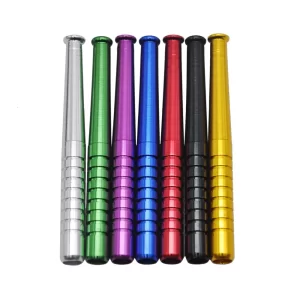An attorney with a history of suing top federal agencies in pursuit of marijuana and psychedelics reform and government transparency is joining the Trump administration, serving under U.S. Department of Health and Human Services (HHS) Secretary Robert F. Kennedy Jr. as deputy general counsel, Marijuana Moment has learned.
Matthew Zorn—who is well known for taking HHS and the Drug Enforcement Administration (DEA) to court under both the Biden and Trump administrations while representing scientists, military veterans and others to advance reform issues—will now be uniquely positioned to promote key policy changes, including those that align with what other top administration officials have recently advocated for within agencies such as the U.S. Department of Veterans Affairs (VA).
Two sources familiar confirmed the hiring with Marijuana Moment, including one who said Zorn is, at least internally, being referred to as the “psychedelics czar” within HHS.
Zorn will be assuming a critical role—and he was specifically recruited with the intent to have him spearhead the agency’s psychedelics policy work, the sources said. Kennedy has personally advocated for ambitious reforms around plant medicine, including at one point as a Democratic presidential candidate calling for legalization of psychedelic therapy.
But beyond the novel nature of the psychedelics role itself within the federal government, what makes Zorn an especially notable hire at HHS is the fact that he has been one of most high-profile attorneys in the drug policy world for his aggressive, and frequently successful, efforts to hold HHS, DEA and prior administrations accountable when it comes to issues such as marijuana rescheduling and psychedelics therapy access.
That included the national headline-making extraction of HHS’s scientific review into marijuana, and its recommendation to reclassify cannabis, via a Freedom of Information Act (FOIA) lawsuit.
On the psychedelics front, Zorn for years has represented a Washington State doctor seeking to legally use psilocybin to treat cancer patients in end-of-life care. In February, a federal appellate court sided with DEA in the case, rejecting the plaintiffs’ latest arguments.
Zorn has also been a central figure in the push to move cannabis from Schedule I to Schedule III under the Controlled Substances Act (CSA), representing a coalition of doctors that sought to suspend administrative hearings on the currently stalled process that was initiated under the Biden administration.
Last November, he separately filed a lawsuit against DEA for allegedly violating federal public records laws, requesting that a court compel the agency to disclose communications with a prohibitionist group during the ongoing marijuana rescheduling process. Questions about DEA’s actual stance on the proposed rule have been a source of contention throughout the proceedings.
There’s a bit of irony underlying the attorney’s new federal role. Zorn, who has hounded government lawyers across multiple federal agencies with Freedom of Information Act (FOIA) requests, may now find himself on the receiving end of filings seeking greater transparency about the Trump administration’s plans on cannabis and psychedelics.
But his elevation to assume a key role within the administration is part of a theme during President Donald Trump’s second term, with multiple top officials openly advocating for research and access to psychedelic medicine, particularly as it concerns veterans with serious mental health conditions such as post-traumatic stress disorder (PTSD) and traumatic brain injury (TBI).
For example, the head of the Food and Drug Administration (FDA) under HHS said recently that exploring the therapeutic potential of psychedelics such as psilocybin and ibogaine is a “top priority” for the Trump administration, especially when it comes to helping military veterans grapple with trauma from being sent to fight “unnecessary wars.”
Under the Biden administration, there was stepped-up interest in examining certain psychedelics, with novel guidance for researchers from FDA in the pursuit of potential approvals, but the agency ultimately rejected an application to make MDMA-assisted therapy available for the treatment of PTSD.
Also, last week, VA Secretary Doug Collins touted the fact that he’s “one of the first” secretaries of the agency with a commitment to exploring psychedelics as a potential therapy option for veterans.
“What we’re seeing so far in some of the studies that are related to VA, and also outside of VA as well,” he told lawmakers during a House committee hearing, “is that there has been—especially when it comes to PTSD and also traumatic brain injury and others—we’re seeing some actual positive outcomes there, especially when it is coupled with intense counseling. And I think that’s the one of the keys that we look forward to.”
Trump’s pick to serve as the next surgeon general, Casey Means, has been public about her own experience benefiting from psilocybin.
Collins also recently met with a military veteran who’s become an advocate for psilocybin access to discuss the therapeutic potential of psychedelic medicine for the veteran community.
Earlier this month, the secretary separately informed Trump during a Cabinet meeting that his agency is “opening up the possibility of psychedelic treatment” for veterans.
Collins disclosed last month that he had an “eye-opening” talk with HHS Secretary Robert F. Kennedy Jr. about the medical potential of psychedelic medicine. And Collins said he’s open to the idea of having the government provide vouchers to cover the costs of psychedelic therapy for veterans who receive services outside of VA as Congress considers pathways for access.
Kennedy himself said during his presidential campaign that he would legalize marijuana and psychedelics if elected to the White House—and he’d tax both substances, using revenue to create “healing centers” where people recovering from drug addiction could learn organic farming as a therapeutic tool. He also voiced support for freeing up banking services for the cannabis industry.
During the town hall event, the then-candidate talked about his own struggles with addiction during his youth and the lessons that he’s taken away from his decades in recovery. While he said he’s generally not one to recommend a drug to treat substance misuse, he’s seen in his own family how psychedelics can facilitate the type of psychological healing needed for long-term recovery.
“I would legalize psychedelic drugs—some form of legalization,” he said, adding that he doesn’t necessarily envision a commercial market where anyone could visit a shop to buy substances like psilocybin, LSD and MDMA, but that there should be regulated access.
“I’m going to decriminalize marijuana on a federal basis, allow the states to regulate it, continue to tax it federally and use those taxes to fund the recovery programs,” he said. “And I would do the same thing for psychedelic drugs, which I do not think should be criminalized.”
In 2023, Kennedy said that he was moved to embrace the therapeutic potential of psychedelics by his son’s experience with ayahuasca.
“My inclination would be to make them available, at least in therapeutic settings and maybe more generally, but in ways that would discourage the corporate control and exploitation of it,” he said.
The candidate added that he also knows a Navy SEAL veterans and NFL players who have gone through psychedelic experiences that have helped them deal with conditions such as PTSD and traumatic brain injuries.
Last month the health and human services secretary spoke about a “wonderful experience” he had taking LSD as a teenager and trying to see dinosaurs.
USDA Trade Committee That Promotes Hemp Internationally To Be Closed Under Trump Executive Order
Image element via Yetter Coleman LLP.




























